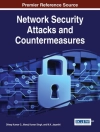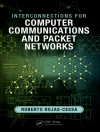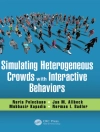This unique collection introduces AI, Machine Learning (ML), and deep neural network technologies leading to scientific discovery from the datasets generated both by supercomputer simulation and by modern experimental facilities.
Huge quantities of experimental data come from many sources — telescopes, satellites, gene sequencers, accelerators, and electron microscopes, including international facilities such as the Large Hadron Collider (LHC) at CERN in Geneva and the ITER Tokamak in France. These sources generate many petabytes moving to exabytes of data per year. Extracting scientific insights from these data is a major challenge for scientists, for whom the latest AI developments will be essential.
The timely handbook benefits professionals, researchers, academics, and students in all fields of science and engineering as well as AI, ML, and neural networks. Further, the vision evident in this book inspires all those who influence or are influenced by scientific progress.
Contents:
- Introduction to AI for Science:
- AI for Science (Alok Choudhary, Geoffrey Fox, and Tony Hey)
- The AI for Science Book in a Nutshell (Alok Choudhary, Geoffrey Fox, and Tony Hey)
- Setting the Scene:
- Data-Driven Science in the Era of AI: From Patterns to Practice (Alexander Sandor Szalay)
- AI in the Broader Context of Data Science (Rafael C Alvarado and Philip E Bourne)
- Alpha Fold — The End of the Protein Folding Problem or the Start of Something Bigger? (David T Jones and Janet M Thornton)
- Applications of AI in Astronomy (S G Djorgovski, A A Mahabal, M J Graham, K Polsterer, and A Krone-Martins)
- Machine Learning for Complex Instrument Design and Optimization (Barry C Barish, Jonathan Richardson, Evangelos E Papalexakis, and Rutuja Gurav)
- Artificial Intelligence (AI) and Machine Learning (ML) at Experimental Facilities (J A Sethian, J J Donatelli, A Hexemer, M M Noack, D M Pelt, D M Ushizima, and P H Zwart)
- The First Exascale Supercomputer Accelerating AI-for-Science and Beyond (Satoshi Matsuoka, Kento Sato, Mohamed Wahib, and Aleksandr Drozd)
- Benchmarking for AI for Science (Jeyan Thiyagalingam, Mallikarjun Shankar, Geoffrey Fox, and Tony Hey)
- Exploring Application Domains:
- Astronomy and Cosmology:
- Radio Astronomy and the Square Kilometre Array (Anna Scaife)
- AI for Astronomy: The Rise of the Machines (Andrew Connolly)
- Climate Change:
- AI for Net-Zero (Alberto Arribas, Karin Strauss, Sharon Gillett, Amy Luers, Trevor Dhu, Lucas Joppa, Roy Zimmermann, and Vanessa Miller)
- AI for Climate Science (Philip Stier)
- Energy:
- Accelerating Fusion Energy with AI (R Michael Churchill, Mark D Boyer, and Steven C Cowley)
- Artificial Intelligence for a Resilient and Flexible Power Grid (Olufemi A Omitaomu, Jin Dong, and Teja Kuruganti)
- Environmental Science:
- AI and Machine Learning in Observing Earth from Space (Jeff Dozier)
- Artificial Intelligence in Plant and Agricultural Research (Sabina Leonelli and Hugh F Williamson)
- Health:
- AI and Pathology: Steering Treatment and Predicting Outcomes (Rajarsi Gupta, Jakub Kaczmarzyk, Soma Kobayashi, Tahsin Kurc, and Joel Saltz)
- The Role of Artificial Intelligence in Epidemiological Modeling (Aniruddha Adiga, Srinivasan Venkatramanan, Jiangzhuo Chen, Przemyslaw Porebski, Amanda Wilson, Henning Mortveit, Bryan Lewis, Justin Crow, Madhav V Marathe, and NSSAC-BII team)
- Life Sciences:
- Big AI: Blending Big Data with Big Theory to Build Virtual Humans (Peter Coveney and Roger Highfield)
- A Roadmap for Defining Machine Learning Standards in Life Sciences (Fotis Psomopoulos, Carole Goble, Leyla Jael Castro, Jennifer Harrow, and Silvio C E Tosatto)
- Materials Science and Engineering:
- Artificial Intelligence for Materials (Debra J Audus, Kamal Choudhary, Brian L De Cost, A Gilad Kusne, Francesca Tavazza, and James A Warren)
- Artificial Intelligence for Accelerating Materials Discovery (Ankit Agrawal and Alok Choudhary)
- Particle Physics:
- Experimental Particle Physics and Artificial Intelligence (David Rousseau)
- AI and Theoretical Particle Physics (Rajan Gupta, Tanmoy Bhattacharya, and Boram Yoon)
- Astronomy and Cosmology:
- The Ecosystem of AI for Science:
- Schema.org for Scientific Data (Alasdair Gray, Leyla Castro, Nick Juty, and Carole Goble)
- AI-coupled HPC Workflows (Shantenu Jha, Vincent Pascuzzi, and Matteo Turilli)
- AI for Scientific Visualization (Chris R Johnson and Han-Wei Shen)
- Uncertainty Quantification in AI for Science (Tanmoy Bhattacharya, Cristina Garcia Cardona, and Jamaludin Mohd-Yusof)
- AI for Next Generation Global Network-Integrated Systems and Testbeds (Mariam Kiran and Harvey B Neumann)
- AI for Optimal Experimental Design and Decision-Making (Francis J Alexander, Kristofer-Roy Reyes, Lav R Varshney, and Byung-Jun Yoon)
- FAIR: Making Data AI-Ready (Susanna-Assunta Sansone, Philippe Rocca-Serra, Mark Wilkinson, and Lee Harlandn)
- Perspectives on AI for Science:
- Large Language Models for Science (Austin Clyde, Arvind Ramanathan, and Rick Stevens)
- AI for Autonomous Vehicles (Tom St John and Vijay Janapa Reddi)
- The Automated AI-driven Future of Scientific Discovery (Hector Zenil and Ross D King)
- Towards Reflection Competencies in Intelligent Systems for Science (Yolanda Gil)
- The Interface of Machine Learning and Causal Inference (Mohammad Taha Bahadori and David E Heckerman)
- Endpiece: AI Tools and Concepts:
- Overview of Deep Learning and Machine Learning (Alok Choudhary, Geoffrey Fox, and Tony Hey)
- Topics, Concepts, and AI Methods Discussed in Chapters (Alok Choudhary, Geoffrey Fox, and Tony Hey)
Readership: Researchers, professionals, academics, and graduate students in AI/machine learning, neural networks, data science, and science and engineering. The latter areas include astronomy, climate, energy, environment, health, life sciences, materials, particle physics, looking at theory, observation, and the design, construction, and control of experimental facilities.












